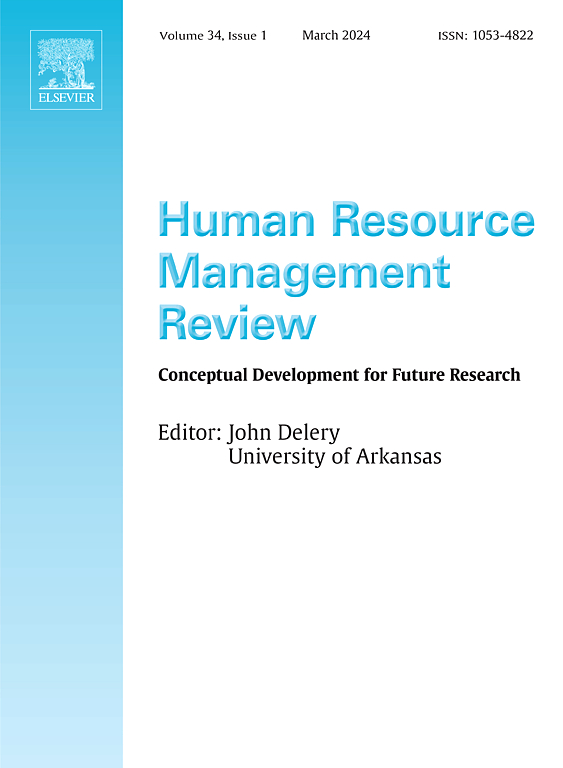Women's authorship in international human resource management research: Implications for responsible management education and emerging scholars
IF 13
1区 管理学
Q1 MANAGEMENT
引用次数: 0
Abstract
Like many professional occupations, the participation of female scholars has steadily increased since the 1990s in the human resource management (HRM) fields. While it is widely acknowledged that workforce diversity brings different perspectives, we lack insight into the impact of such changes. In this paper, we explore the implications of gender in the authorship of scholarly articles for the knowledge base of this field, using an example of a content analysis of 890 articles in the international HRM field. We discuss the implications of gender in scholarly work both within and beyond the HRM field. We draw connections to the sustainability development agenda and responsible management education from a gender perspective and offer suggestions for the career development of emerging and future scholars.
国际人力资源管理研究中的女性作者身份:对负责任管理教育和新兴学者的启示
与许多专业职业一样,自20世纪90年代以来,女性学者在人力资源管理(HRM)领域的参与度稳步上升。虽然人们普遍认为,劳动力多样性带来了不同的视角,但我们对这种变化的影响缺乏了解。在本文中,我们通过对国际人力资源管理领域890篇文章的内容分析,探讨了性别对该领域知识库学术文章作者身份的影响。我们讨论了性别在人力资源管理领域内外的学术工作中的影响。我们从性别角度将可持续发展议程和负责任管理教育联系起来,并为新兴和未来学者的职业发展提供建议。
本文章由计算机程序翻译,如有差异,请以英文原文为准。
求助全文
约1分钟内获得全文
求助全文
来源期刊

Human Resource Management Review
MANAGEMENT-
CiteScore
20.20
自引率
7.00%
发文量
0
审稿时长
48 days
期刊介绍:
The Human Resource Management Review (HRMR) is a quarterly academic journal dedicated to publishing scholarly conceptual and theoretical articles in the field of human resource management and related disciplines such as industrial/organizational psychology, human capital, labor relations, and organizational behavior. HRMR encourages manuscripts that address micro-, macro-, or multi-level phenomena concerning the function and processes of human resource management. The journal publishes articles that offer fresh insights to inspire future theory development and empirical research. Critical evaluations of existing concepts, theories, models, and frameworks are also encouraged, as well as quantitative meta-analytical reviews that contribute to conceptual and theoretical understanding.
Subject areas appropriate for HRMR include (but are not limited to) Strategic Human Resource Management, International Human Resource Management, the nature and role of the human resource function in organizations, any specific Human Resource function or activity (e.g., Job Analysis, Job Design, Workforce Planning, Recruitment, Selection and Placement, Performance and Talent Management, Reward Systems, Training, Development, Careers, Safety and Health, Diversity, Fairness, Discrimination, Employment Law, Employee Relations, Labor Relations, Workforce Metrics, HR Analytics, HRM and Technology, Social issues and HRM, Separation and Retention), topics that influence or are influenced by human resource management activities (e.g., Climate, Culture, Change, Leadership and Power, Groups and Teams, Employee Attitudes and Behavior, Individual, team, and/or Organizational Performance), and HRM Research Methods.
 求助内容:
求助内容: 应助结果提醒方式:
应助结果提醒方式:


